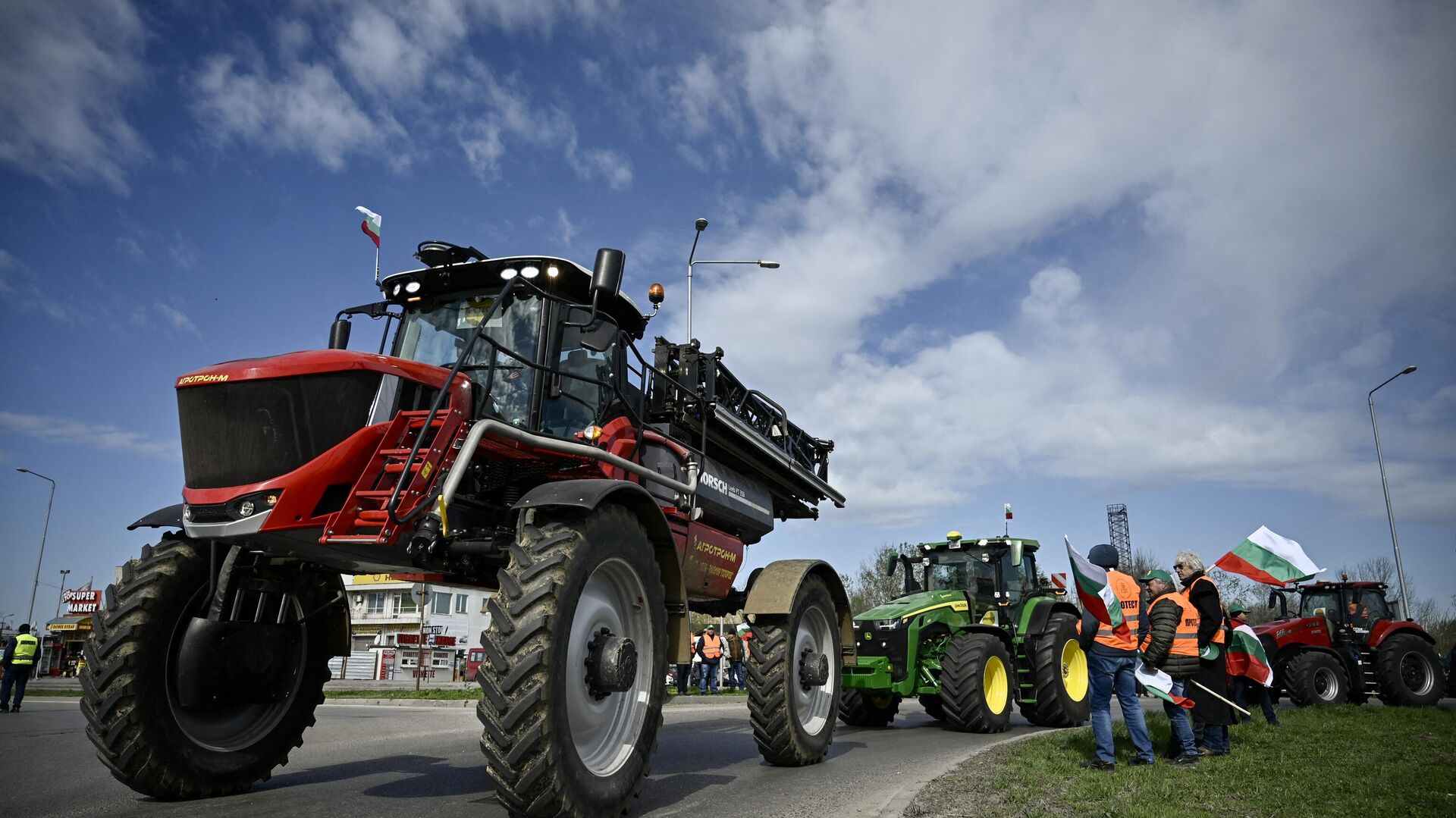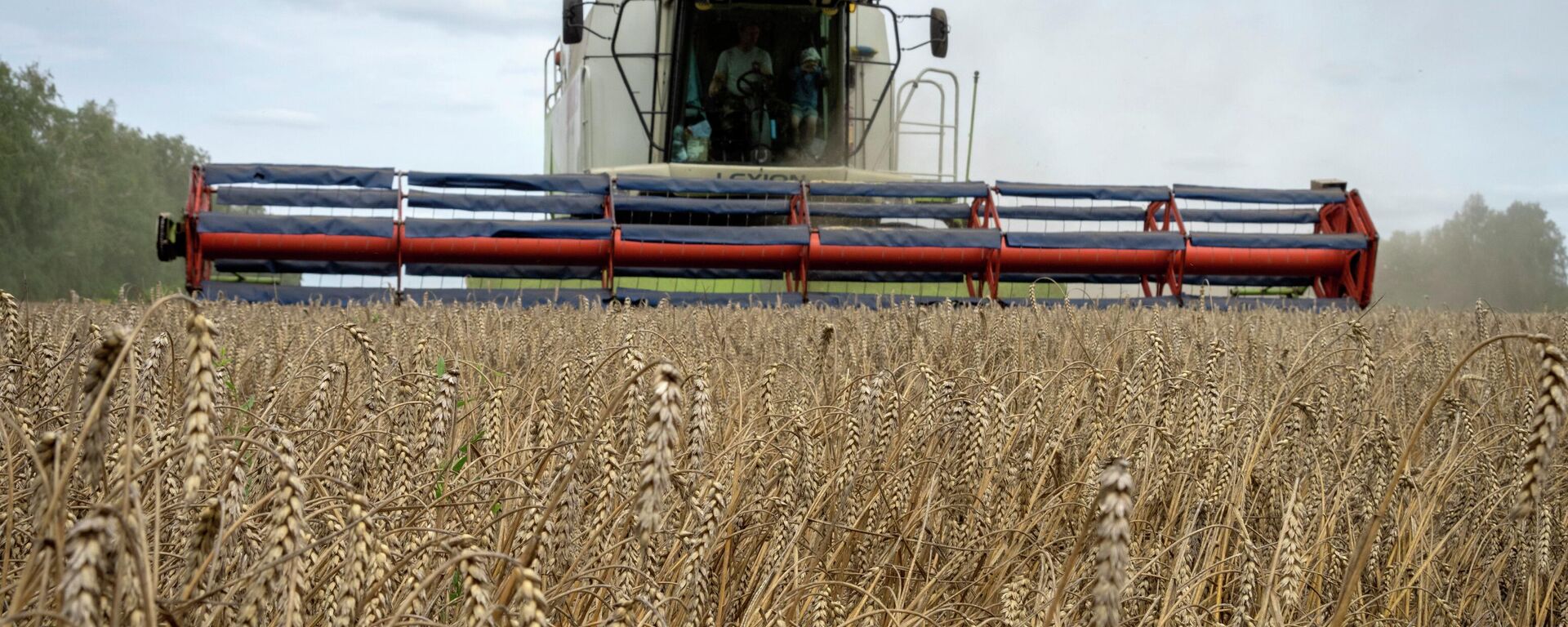https://sputnikglobe.com/20230419/bulgaria-temporarily-bans-food-imports-from-ukraine-except-for-transit-1109659099.html
Bulgaria Temporarily Bans Food Imports From Ukraine Except for Transit
Bulgaria Temporarily Bans Food Imports From Ukraine Except for Transit
Sputnik International
Bulgaria has temporarily banned imports of food from Ukraine, with the exception of goods in transit, caretaker Bulgarian Prime Minister Galab Donev said on Wednesday.
2023-04-19T13:10+0000
2023-04-19T13:10+0000
2023-04-19T13:10+0000
world
food imports
bulgaria
ukraine
https://cdn1.img.sputnikglobe.com/img/07e7/04/02/1109047617_0:159:3079:1890_1920x0_80_0_0_1723e4cb76d92b5511b320b87b8665db.jpg
"Over the past year, Bulgaria has seen large volumes of food remain in the country, disrupting supply chains. If the trend persists or intensifies, there may be extremely serious consequences for Bulgarian business. We are forced to adopt this national measure because the European authorities are still considering an adequate measure," Donev said, as quoted by Radio Bulgaria. Donev stressed that Bulgaria remains in solidarity with Ukraine, but "the bankruptcy of Bulgarian farmers will not contribute to its cause." The politician expressed hope that the European Union would understand the positions of the countries imposing a ban on Ukrainian food imports. On Saturday, Poland and Hungary said they were banning imports of Ukrainian agricultural products until June 30, citing the need to protect domestic farmers from the uncontrolled influx of cheap grain from Ukraine. On Monday, Slovakia followed suit. Ukraine was granted a temporary duty-free trade arrangement with the EU last June. In March 2022, the EU additionally launched so-called green corridors to facilitate the transit of Ukrainian grain to the world market; however, the cheap grain from Ukraine ended up flooding EU markets instead, prompting outrage among local farmers.
https://sputnikglobe.com/20230407/bulgarian-farmers-resume-protests-over-cheap-ukrainian-grain-1109236302.html
ukraine
Sputnik International
feedback@sputniknews.com
+74956456601
MIA „Rossiya Segodnya“
2023
Sputnik International
feedback@sputniknews.com
+74956456601
MIA „Rossiya Segodnya“
News
en_EN
Sputnik International
feedback@sputniknews.com
+74956456601
MIA „Rossiya Segodnya“
Sputnik International
feedback@sputniknews.com
+74956456601
MIA „Rossiya Segodnya“
food from ukraine, goods in transit, bulgarian prime minister galab donev
food from ukraine, goods in transit, bulgarian prime minister galab donev
Bulgaria Temporarily Bans Food Imports From Ukraine Except for Transit
MOSCOW (Sputnik) - Bulgaria has temporarily banned imports of food from Ukraine, with the exception of goods in transit, caretaker Bulgarian Prime Minister Galab Donev said on Wednesday.
"Over the past year, Bulgaria has seen large volumes of food remain in the country, disrupting supply chains. If the trend persists or intensifies, there may be extremely serious consequences for Bulgarian business. We are forced to adopt this national measure because the European authorities are still considering an adequate measure," Donev said, as quoted by Radio Bulgaria.
Donev stressed that Bulgaria remains in solidarity with Ukraine, but "the bankruptcy of Bulgarian farmers will not contribute to its cause."
The politician expressed hope that the European Union would understand the positions of the countries imposing a ban on Ukrainian food imports.
On Saturday, Poland and Hungary said they were banning imports of Ukrainian agricultural products until June 30, citing the need to protect domestic farmers from the uncontrolled influx of cheap grain from Ukraine. On Monday, Slovakia followed suit.
Ukraine was granted a temporary
duty-free trade arrangement with the EU last June. In March 2022, the EU additionally launched so-called green corridors to facilitate the transit of Ukrainian grain to the world market; however, the cheap grain from Ukraine ended up flooding EU markets instead, prompting outrage among local farmers.



